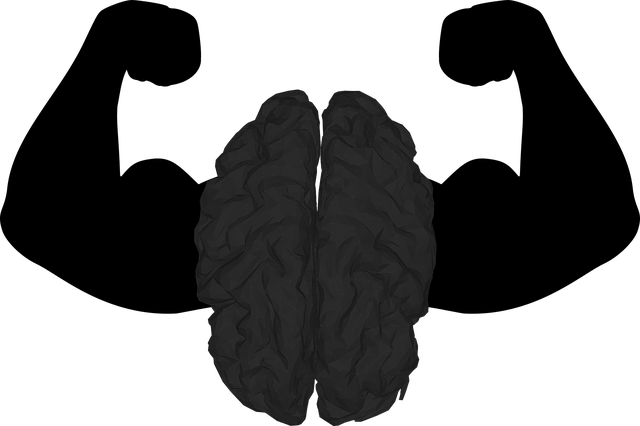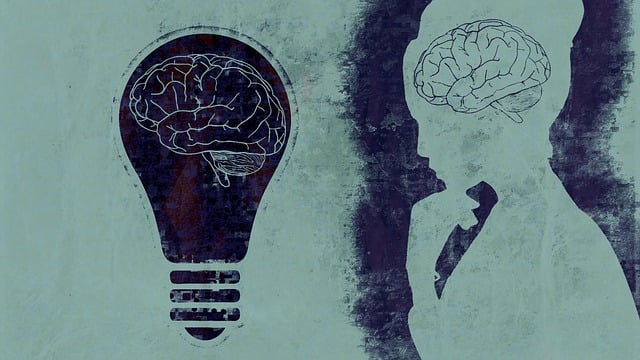Coping skills development is crucial for empowering young adults to navigate interpersonal issues that impact their mental health and well-being. Therapy, including cognitive-behavioral techniques, offers effective coping strategies such as stress management, anxiety and depression mitigation, and healthy conflict resolution. By prioritizing self-care and mental health policy advocacy, this demographic can enhance relationships, build resilience, and improve access to resources. Cultural sensitivity in therapy and crisis intervention guidance are vital for personalized support tailored to each individual's unique needs. Self-care practices like mindfulness, exercise, and balanced diets further strengthen their mental wellness journey.
Coping skills development is a vital aspect of mental well-being, especially for young adults navigating complex life challenges. This article delves into the significance of coping strategies in managing stress and interpersonal issues. We explore why these skills matter, highlighting their impact on young adults’ overall health. Through identifying common interpersonal problems and understanding their effects, we offer therapeutic approaches to enhance coping abilities. Additionally, practical tools are presented to build resilience, fostering a more robust mental framework. Real-world success stories inspire, demonstrating the power of effective coping strategies in overcoming adversity.
- Understanding Coping Skills: Why They Matter for Young Adults
- Identifying Interpersonal Issues and Their Impact
- Therapeutic Approaches to Enhance Coping Strategies
- Building Resilience: Practical Tools and Techniques
- Real-World Application: Success Stories and Takeaways
Understanding Coping Skills: Why They Matter for Young Adults

For young adults, coping skills development is a vital aspect of navigating life’s challenges and complexities. As they transition into adulthood, many individuals face various interpersonal issues that can significantly impact their mental health and overall well-being. Therapy for young adults plays a crucial role in equipping them with effective coping strategies to manage stress, anxiety, depression, and other emotional struggles.
Understanding and prioritizing self-care routine development for better mental health is essential during these formative years. By learning healthy conflict resolution techniques, young adults can enhance their interpersonal relationships and navigate social dynamics more effectively. Mental health policy analysis and advocacy also come into play as fostering an environment that supports open conversations about mental wellness encourages early intervention and improves access to resources, ultimately promoting resilience and coping skills in this demographic.
Identifying Interpersonal Issues and Their Impact

Many young adults find themselves grappling with interpersonal issues that can significantly impact their mental wellness. These challenges often manifest in various forms, such as difficult relationships, social anxiety, or feelings of isolation. Recognizing and understanding these problems is a crucial step towards development of coping skills. Interpersonal therapy for young adults can provide a safe space to explore these dynamics and learn effective strategies for navigating them.
By addressing interpersonal issues, mental health professionals can help individuals develop better mood management techniques, enhance their communication skills, and foster healthier relationships. This may involve exploring underlying causes through discussions, encouraging self-awareness through journaling exercises, and teaching practical tools for resolving conflicts or managing stress related to social interactions. A comprehensive risk assessment is essential to ensure the best support for each individual’s unique needs.
Therapeutic Approaches to Enhance Coping Strategies

In the realm of therapy for young adults grappling with interpersonal issues, various therapeutic approaches have proven effective in enhancing coping strategies. One such method is cognitive-behavioral therapy (CBT), which focuses on identifying and changing negative thought patterns and behaviors contributing to stress or distress. By teaching clients practical skills to manage their emotions and challenges, CBT empowers them to develop healthier coping mechanisms tailored to their unique experiences.
Additionally, cultural sensitivity in mental healthcare practice plays a pivotal role in fostering effective coping strategies. Recognizing the influence of cultural background on emotional expression and problem-solving, therapists adapt their approaches to respect and incorporate clients’ cultural contexts. This nuanced understanding not only strengthens the therapeutic alliance but also ensures that coping interventions are culturally relevant and accessible, thereby enhancing their effectiveness. Crisis intervention guidance is another valuable tool, offering immediate support during intense situations, while also equipping individuals with strategies to prevent and manage future crises effectively. Alongside these approaches, burnout prevention strategies for healthcare providers are essential, as they ensure therapists remain equipped and resilient in supporting young adults on their journey towards healthier coping habits.
Building Resilience: Practical Tools and Techniques

Building resilience is a key aspect of coping skills development, especially for young adults navigating interpersonal issues. Therapy for young adults often emphasizes practical tools and techniques to enhance mental wellness. Self-care practices such as mindfulness meditation, regular exercise, and maintaining a balanced diet can significantly improve one’s ability to cope with stress and challenges. These habits not only boost confidence but also provide a solid foundation for overall mental health.
The Mental Wellness Podcast Series Production offers valuable insights into various coping strategies that young adults can integrate into their daily lives. From cognitive-behavioral therapy techniques to exploring creative outlets, these resources empower individuals to take charge of their emotional well-being. By combining professional guidance with personal initiative, one can develop a robust toolkit for managing interpersonal issues and fostering lasting mental wellness.
Real-World Application: Success Stories and Takeaways

In today’s world, young adults often face significant interpersonal issues that can impact their mental health and overall well-being. Thankfully, therapy has proven to be a powerful tool for coping with these challenges. Many success stories emerge from young adults who have harnessed the power of therapy to navigate through depression prevention and develop effective coping skills. These individuals have not only found solace but also gained valuable insights that have enhanced their lives.
One key takeaway from these success stories is the importance of cultural competency training for healthcare providers. By understanding and addressing the unique cultural experiences of young adults, therapists can create a safe and supportive environment, fostering open communication and ensuring personalized care. This approach not only facilitates better coping skills development but also encourages long-term mental health resilience among this demographic.
Coping skills development is a pivotal aspect of mental health for young adults, offering them tools to navigate interpersonal issues effectively. By understanding the impact of these challenges and employing therapeutic approaches, individuals can build resilience and enhance their overall well-being. The strategies discussed in this article provide a practical framework for young adults to manage stress, improve relationships, and lead more fulfilling lives. Whether through cognitive behavioral therapy, mindfulness practices, or building supportive networks, there are numerous ways to foster healthy coping mechanisms. By integrating these techniques into daily life, individuals can overcome interpersonal obstacles and thrive in their personal and professional pursuits.














